6 ways to healthy up your dinner
Keep an eye out for large dinner plates and excessive amounts of oil.
Updated on March 15, 2022
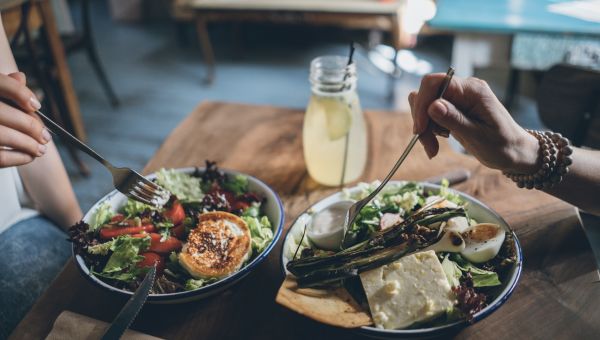
You eat healthfully and conscientiously throughout the day, but when dinner rolls around it's understandable to want to indulge a bit. The trick is, if you overdo it at your evening meal, you could be taking on more calories than you bargained for.
The good news is that there are ways to splurge at dinnertime while still reining in your intake of calories, salt, and fat. Here are some easy tweaks you can make to your dinner to make it healthy and delicious.
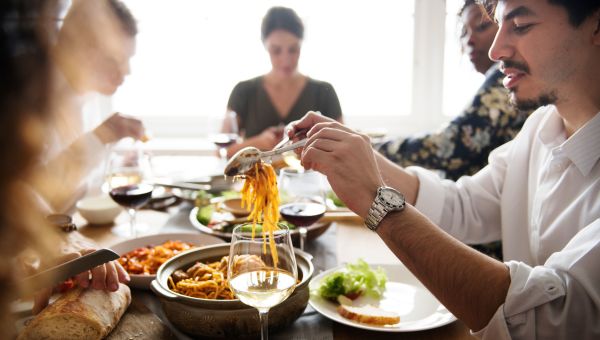
Rethink the Size of Your Dinner
Consuming too few calories during the day may lead to overeating at night. Instead of gearing up for a dinner of epic proportion, opt for a larger breakfast or lunch. This should keep you from overdoing it at the dinner table.
When you do sit down for supper, it's important to practice portion control—even when you're choosing healthy foods. A healthy serving of lean protein, like grilled chicken breast, is about 3 ounces, or the size of a deck of cards. This portion contains about 140 calories, and eating much more can quickly tack on unnecessary calories. Add some volume (and nutrients) to your plate by loading on some low-calorie, leafy greens, like spinach, kale, or arugula.
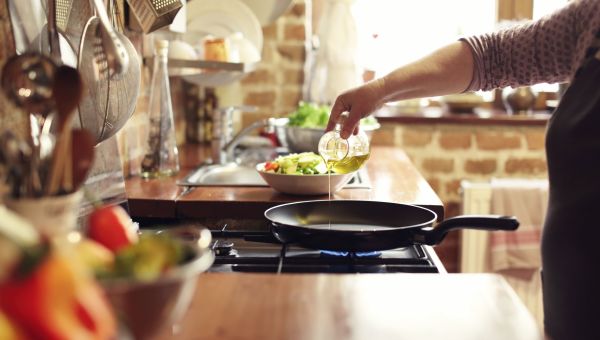
Go Easy on Cooking Oil
Vegetables are vital to any healthy diet, but adding too much oil can quickly ramp up your caloric intake. Monounsaturated fats, like olive oil, can help lower blood cholesterol and protect your heart from disease, but they also add calories to your meal. Per tablespoon, olive oil contains 120 calories and 14 grams of fat.
Instead of drowning your veggies in high-calorie oil, use just a splash or a spray and sprinkle on seasonings like black pepper, oregano, and garlic. You can also skip the oil altogether and use low-sodium chicken stock for simmering or sauteeing.

Eat Earlier in the Evening
The timing of your snacks and meals may not cause weight gain in and of itself, but what you choose to eat might. When nighttime hunger strikes, we often reach for what's convenient. That means we often grab options that can be high in calories and low in nutrients.
To help make wholesome choice simple, prepare your meals ahead of time, such as the night before or earlier in the week. You can prepare between-meal snacks, too. A small snack, between 150 and 200 calories, can help ease late-night cravings without resorting to chips or ice cream. Prepare a combination of carbohydrates and lean protein, like veggie sticks and hummus or berries and plain, nonfat Greek yogurt.
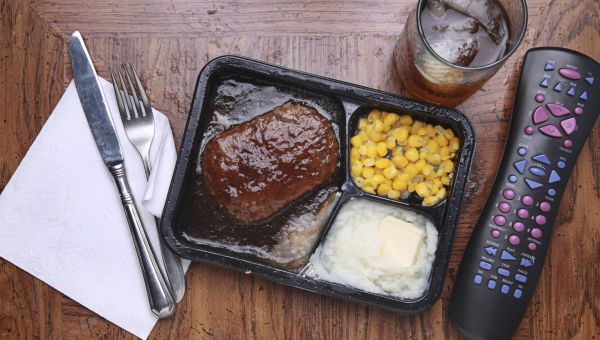
Keep Frozen Dinners on Ice
Don’t let the small package fool you, frozen dinners are often loaded with more fat, sugar, and sodium than home-cooked meals. And when your tiny TV dinner fails to fill you up, you'll likely go searching for something else to nosh, adding more calories to your day.
Beware the “diet-friendly” dinners, too. Many reduced-fat and reduced-calorie meals contain excess sodium or sugar. A healthy homemade meal, like a combination of baked salmon and steamed broccoli, is always best, though there may be some better-for-you frozen dinners. Take special care to check the package ingredients.
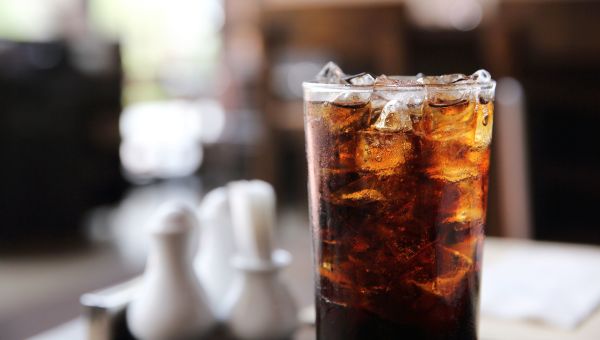
Choose Your Drinks Wisely
Sometimes a glass of wine or sugary soft drink sounds like the best way to unwind after a stressful day, but you might want to reconsider your drink of choice. A 5-ounce glass of wine contains about 100 calories, a 12-ounce glass of fruit juice contains about 170 calories, and a 20-ounce bottle of soda can contain almost 230 calories.
The occasional cocktail or fountain soda won't cause the scale to spike, but drinking the extra calories every day may lead to a yearly weight gain of about 15 pounds. Cut the unnecessary calories by pouring a tall glass of water with lemon or sipping zero-calorie seltzer with your dinner.
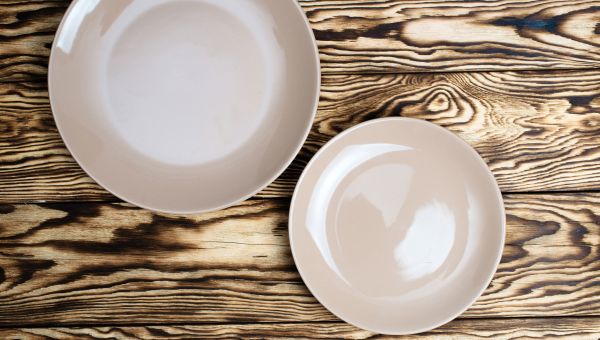
Downsize Your Plates
The way you plate your food may help determine how many calories you consume. When we eat from a large dinner plate, we may serve ourselves more. You may also think you’re eating less than you actually are and go back for a second helping that you don't really need. One chicken breast and a half cup of brown rice looks much bigger on a 9-inch plate than it does on a 12-inch plate. So trade in your large plate for a smaller one to help convince your mind that a smaller serving may be plenty.
More On


video
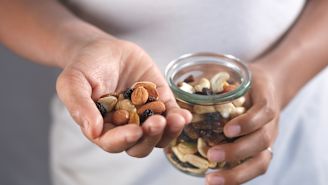
article
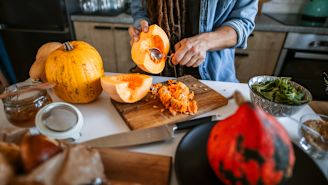
slideshow


video


video
